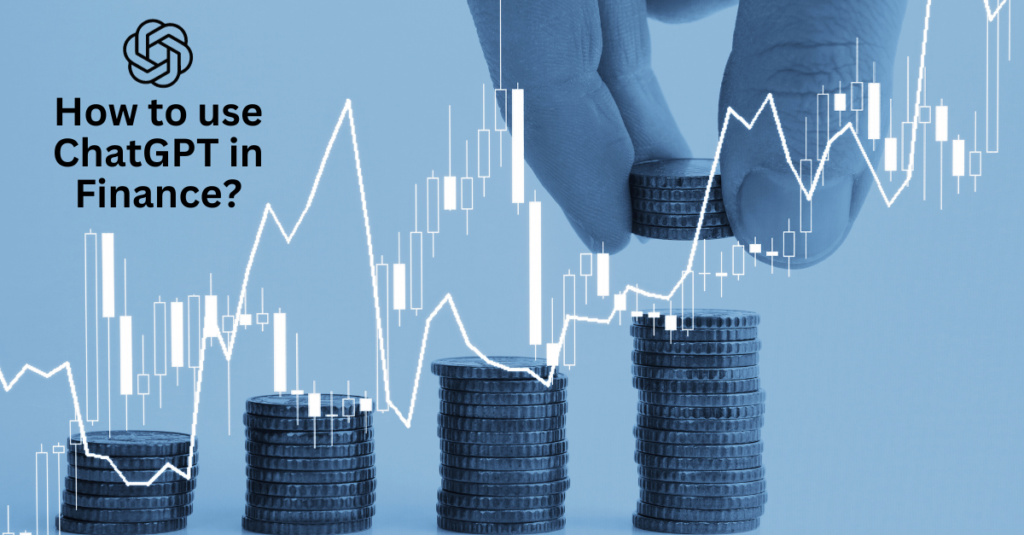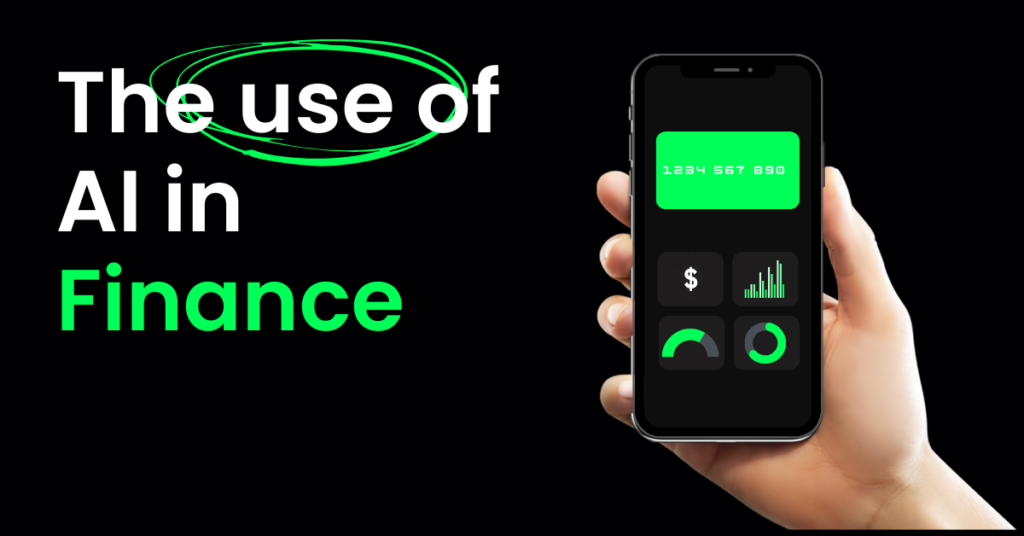
Welcome to our comprehensive guide on How to use ChatGPT in finance. In this article, we will explore the best practices for using ChatGPT effectively in finance, including its various applications such as finance chatbots and using ChatGPT in banking. We will also highlight the benefits and potential limitations of incorporating ChatGPT into your financial processes.
ChatGPT, powered by AI, has gained immense popularity for its ability to generate human-like responses and provide accurate language translations. It has become a valuable tool for businesses and individuals in the finance industry, especially those looking to leverage AI tools in Finance.
Discover how to employ ChatGPT in finance by unlocking its full potential. From creating finance chatbots to leveraging its capabilities in banking, we will guide you through the process. By incorporating ChatGPT into your financial strategies, you can enhance your decision-making and streamline your financial processes.
Stay tuned as we dive deeper into the steps to effectively use ChatGPT in finance, how to optimize conversations with the model, explore the various applications in the finance industry, and even delve into advanced techniques for maximum efficiency. Let’s unlock the power of ChatGPT together!
How to use ChatGPT in finance? Getting Started!
Before you can effectively use ChatGPT in the finance industry, it’s crucial to understand how to get started and set it up for financial applications. This section will provide a step-by-step guide to help you navigate the process seamlessly.
First, it’s essential to decide whether you want to train your own model or use pre-trained models. Training your own model gives you more control and customization options, but it requires access to significant computational resources and expertise in machine learning. On the other hand, using pre-trained models simplifies the process but may have limitations in terms of specificity to your financial needs.
Once you’ve chosen your approach, the next step is setting up a Python environment with the necessary packages. Python provides a powerful and flexible platform for working with ChatGPT. You’ll need to ensure you have the required libraries, such as OpenAI’s Python library, installed and configured properly.
In addition to the setup, it’s important to familiarize yourself with the basic features of ChatGPT that make it suitable for finance applications. ChatGPT excels in natural language processing and can generate text responses based on given prompts. This makes it a valuable tool for tasks like financial planning, where you can utilize ChatGPT to provide personalized insights and recommendations.
Optimizing Conversations with ChatGPT in Finance
When using ChatGPT in finance, optimizing the conversations is crucial to ensure accurate and relevant responses. To achieve this, it is essential to provide clear and specific prompts that outline the desired outcome or question. By avoiding ambiguous or open-ended prompts, you can guide ChatGPT towards generating more focused and actionable responses for financial advice, investment management, and financial analysis.
In addition to clear prompts, utilizing multiple rounds of conversation can help build context and improve the quality of responses. By gradually providing more information and clarifying the context in subsequent rounds, you can enhance ChatGPT’s understanding and accuracy. This iterative approach allows the model to consider the conversation history and generate more refined and tailored insights for specific financial tasks.
Related Post: The Ultimate Guide to the Best AI Marketing Tools for Business Growth in 2024
Successfully Fine-Tuning ChatGPT for Finance
Another way to optimize ChatGPT for finance is by fine-tuning the model. Fine-tuning involves training the base ChatGPT model on a specific dataset related to finance. This process enables the model to learn domain-specific knowledge and improve its performance when tasked with financial analysis, investment recommendations, or other finance-related queries.
Monitoring and providing feedback on ChatGPT’s responses is essential to continuously improve its performance. By assessing the generated outputs, identifying any inaccuracies or inconsistencies, and providing corrective feedback, you can refine the model’s responses over time. This iterative feedback loop helps ChatGPT better understand and respond to the nuances of financial conversations, ultimately enhancing its capabilities to provide accurate and reliable financial insights.
Using ChatGPT for Different Applications in Finance
ChatGPT has quickly become a valuable tool in the finance industry, offering a wide range of applications and benefits. One prominent application is the use of ChatGPT in finance chatbots, providing users with instant access to financial advice and information. These chatbots can assist with tasks such as budgeting, investment recommendations, and answering common financial questions. By leveraging ChatGPT’s natural language processing capabilities, finance chatbots can simulate human-like conversations and deliver personalized financial guidance.
Another notable application of ChatGPT in finance is language translation for international banking. With businesses operating on a global scale, the ability to communicate and understand financial documents in different languages is crucial. ChatGPT can facilitate this process by accurately translating financial reports, contracts, and other documents, enabling seamless communication between financial institutions worldwide.
Furthermore, ChatGPT can also be utilized for generating content for financial reports and marketing materials. Writing detailed financial reports or creating engaging marketing content can be time-consuming and demanding. ChatGPT can assist finance professionals by generating accurate and concise content based on given prompts, reducing the time and effort required for content creation.
ChatGPT in the Financial Industry: A Versatile Solution
Overall, the applications of ChatGPT in the finance industry are diverse and far-reaching. From finance chatbots to language translation and content generation, ChatGPT offers a versatile solution that streamlines financial processes and enhances customer experiences. As the technology continues to advance, we can expect to see even more innovative applications of ChatGPT in finance, revolutionizing the way we interact with financial services and information.
Advanced Techniques for Using ChatGPT in Finance
When it comes to using ChatGPT in the banking sector, advanced techniques can take your financial planning and analysis to the next level. One of these techniques is fine-tuning ChatGPT for specific financial tasks. By training the model on relevant financial data, you can improve its accuracy and performance in tasks like sentiment analysis or content summarization.
Another way to enhance ChatGPT’s capabilities in finance is by leveraging the power of other AI models and tools. For example, you can combine ChatGPT with natural language processing algorithms to extract key information from financial documents or to automate tedious financial analysis tasks. This collaboration allows for more comprehensive and efficient financial planning and analysis.
Using ChatGPT in Banking
Banks can greatly benefit from utilizing ChatGPT for various banking services. ChatGPT can be used as a virtual assistant to provide personalized customer support, answer common banking queries, or even assist with complex financial transactions. By implementing ChatGPT in banking operations, banks can enhance customer experience, reduce response times, and improve overall efficiency.
Furthermore, ChatGPT can also be used for risk assessment and fraud detection in banking. By analyzing customer interactions and transaction data, the model can identify potential fraud patterns or detect anomalies in real time. This advanced technique helps banks mitigate risks and protect their customers’ financial assets.
Conclusion
In conclusion, ChatGPT has emerged as a powerful tool for the finance industry, revolutionizing the way businesses and individuals interact with AI-driven technologies. By understanding how to use ChatGPT in finance, users can unlock its full potential and leverage its capabilities for various financial applications.
One prominent application of ChatGPT in finance is the development of finance chatbots. These chatbots can provide personalized financial advice, assist with investment management, and offer real-time support to customers. With its natural language processing capabilities, ChatGPT enables seamless and human-like conversations, enhancing the overall customer experience.
Furthermore, ChatGPT can also be used for language translation in international banking, allowing financial institutions to communicate with customers across different languages and regions. Additionally, it can generate content for financial reports and marketing materials, saving time and resources for businesses.
While ChatGPT offers immense value in finance, it is important to optimize conversations with the model. Providing clear and specific prompts, conducting multi-round conversations to build context, and fine-tuning the model for specific financial tasks can significantly improve its performance and reliability.
By embracing ChatGPT and incorporating it into financial strategies, businesses, and individuals can gain valuable insights, streamline financial processes, and make more informed decisions. With its versatile applications and potential for further advancements, ChatGPT continues to shape the future of the finance industry.
Related Post: The Best AI-Powered Sales Tools for Optimizing Revenue
FAQ
How does ChatGPT work?
ChatGPT is an AI-powered language model that generates human-like responses based on given prompts. It uses natural language processing capabilities to understand and generate text.
What are the best practices for setting up ChatGPT for financial applications?
To set up ChatGPT for finance, you can train your own model or use pre-trained models. Setting up a Python environment and installing the necessary packages are also important steps.
How can I optimize conversations with ChatGPT in finance?
Clear and specific prompts, multiple rounds of conversation to build context, and the option to fine-tune the model for specific financial tasks are essential to generating coherent and relevant responses from ChatGPT.
What are the different applications of ChatGPT in the finance industry?
ChatGPT can be used as a finance chatbot for providing financial advice, for language translation in international banking, and for generating content in financial reports and marketing materials.
Are there advanced techniques for using ChatGPT in finance?
Yes, fine-tuning ChatGPT for specific financial tasks, such as sentiment analysis or content summarization, and using it in conjunction with other AI models and tools can enhance its capabilities in the finance industry.

